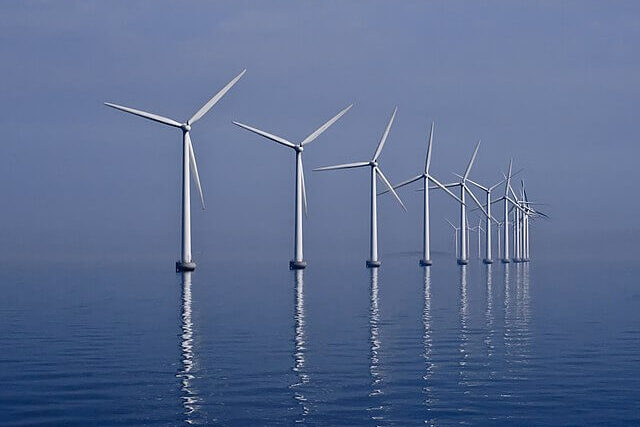
The UK government’s recently published “Powering up Britain” strategy, which aims to reduce greenhouse gas emissions to net zero by 2050, has been met with criticism from experts and environmental groups. The plan, which was drawn up after the High Court ruled the government’s existing plans were not sufficient to meet its climate targets, includes a central strategy to store CO2 under the North Sea. However, scientists argue that this plan will not move the UK any closer towards meeting its legally binding carbon commitments.
Academics and green groups have criticised the plan, saying that it will not make enough difference. The government aims to lower people’s energy bills, but this will not be achieved in the short term. The government was forced to publish the strategy after the High Court judged last July that its current plan was not detailed enough to show how the UK would meet its goal of reducing its greenhouse gas emissions to net zero by 2050. Friends of the Earth, who were part of the team who brought the legal case against the last plan, said they may have to go back to the High Court.
One of the key parts of the new strategy is announcing the UK’s first carbon capture sites in Teesside. These sites take carbon dioxide (CO2) produced during the burning of fossil fuels like gas, and store them in deep caverns under the North Sea. It is hoped that this could remove up to 50% of the emissions from the country’s industry.
Although carbon capture has been recommended by the UK’s independent climate advisers the UKCCC as a way to remove CO2 already in the atmosphere, academics are concerned that it could allow the UK to keep using oil and gas rather than focusing on renewable energy. Some campaigners are also frustrated that there appears to be no significant increase in funding for home insulation, which is one of the most effective ways to bring down energy consumption for heating and therefore emissions, as heating in homes currently accounts for 14% of UK emissions.
Meanwhile, Labour’s shadow climate secretary Ed Miliband said: “The government’s ‘green day’ turns out to be a weak and feeble groundhog day of re-announcements, reheated policy, and no new investment.” And Green Party MP Caroline Lucas said: “The greenest thing about this is the recycling of already announced ideas.” There are dozens of measures in the plan, which runs to 1,000 pages, covering energy efficiency in domestic properties to large infrastructure projects.
Ministers have promised to extend a scheme offering households £5,000 to replace their gas boilers with heat pumps by three years. A Lords inquiry recently described the heat pump scheme as “seriously failing,” after initial figures showed low take-up of the grant by households. But it is hoped that a new marketing campaign will help dispel some of the worries around their installation.
Keeping energy bills low for consumers is also a key ambition of this strategy. Energy Security Secretary Grant Shapps said the proposals would change the way people are billed which would cut electricity prices in the long term. The government has said it recognises one of the main ways to bring down bills is by increasing renewable energy but also by “decoupling” electricity from gas prices.
The UK still needs natural gas to meet its demand, so its generators, which charge the highest prices, set the electricity cost. The government has proposed to move the existing “green levies” on electricity prices over to gas prices so as not to penalise households for using electricity, which is greener.
There were further announcements made to MPs on Thursday including plans to expand investment opportunities in home heating and offshore wind energy, but there was no change to the restriction on planning for onshore wind. Liberal Democrat environment spokesperson Wera Hobhouse told the BBC: ”
——————————————————————————
At Natural World Fund, we are passionate about stopping the decline in our wildlife.
The declines in our wildlife is shocking and frightening. Without much more support, many of the animals we know and love will continue in their declines towards extinction.
When you help to restore a patch of degraded land through rewilding to forests, meadows, or wetlands, you have a massive impact on the biodiversity at a local level. You give animals a home and food that they otherwise would not have had, and it has a positive snowball effect for the food chain.
We are convinced that this is much better for the UK than growing lots of fast-growing coniferous trees, solely to remove carbon, that don’t actually help our animals to thrive.
This is why we stand for restoring nature in the UK through responsible rewilding. For us, it is the right thing to do. Let’s do what’s right for nature!
Support our work today at https://naturalworldfund.com/ and join in the solution!

